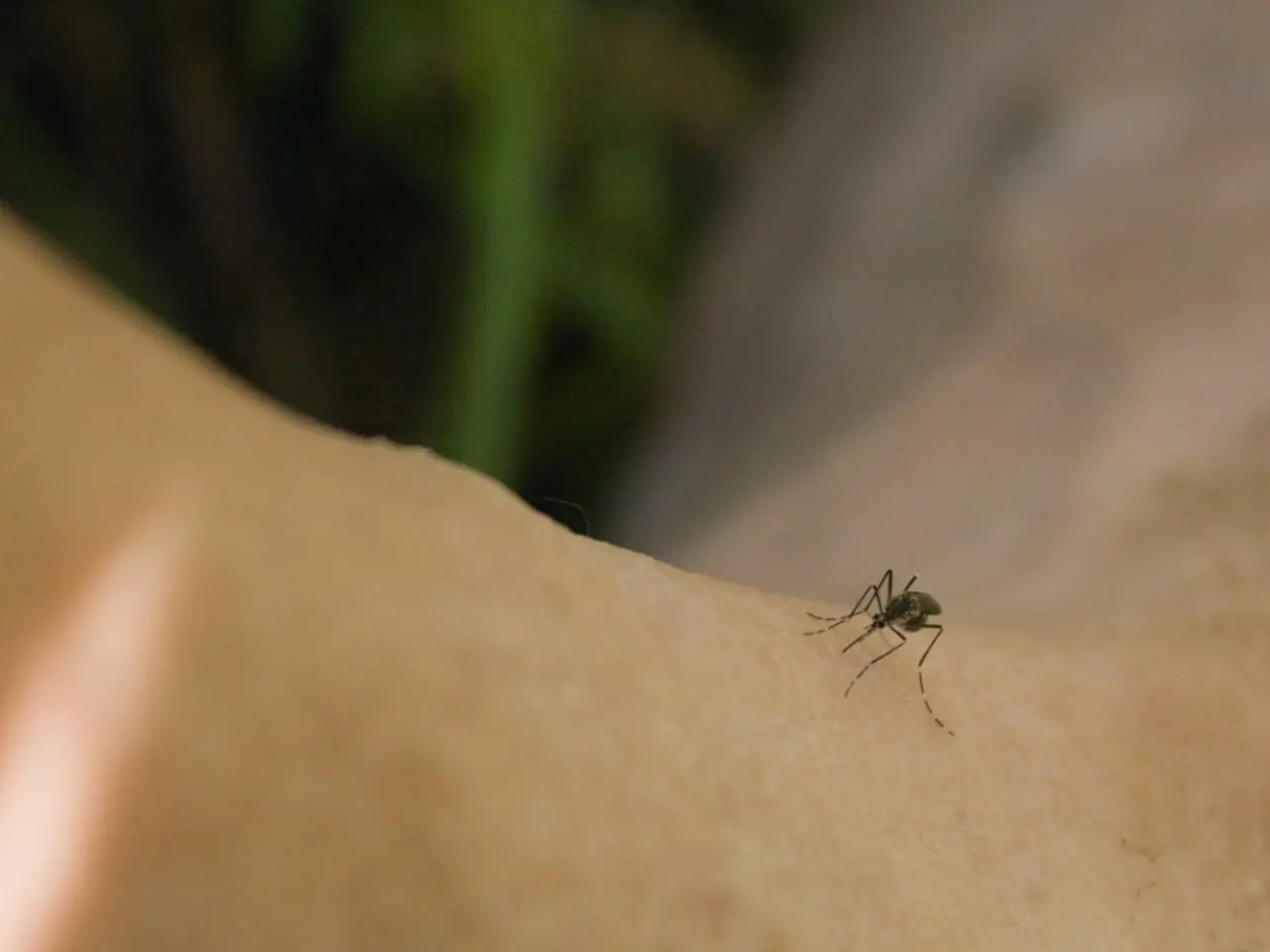Reasons Behind Intense Mosquito Bites You Experience
Mosquitoes are a common nuisance during warm weather, and understanding their behaviour can help in avoiding bites. Here are some key facts about mosquitoes and ways to repel them.
Mosquitoes are attracted to certain colours, such as red, orange, black, and cyan, while clothing in green, purple, blue, or white may have a deterrent effect. However, it's important to note that mosquitoes are also drawn to body odour and scented body products, particularly those with strong floral scents.
When it comes to body chemistry, high concentrations of steroids, cholesterol, carboxylic acids, uric acid, lactic acid, and ammonia on the skin's surface can attract mosquitoes. Interestingly, substances in skin creams and body care products that produce an attraction for mosquitoes include lactic acid, certain fatty acids, ammonia, and sometimes fragrances or ingredients that mimic human sweat compounds.
Exercise and respiration play a role too. Mosquitoes can detect carbon dioxide and are attracted to people who are breathing heavily, such as those doing cardiovascular exercise or experiencing tachypnea. They are also attracted to warm environments, making them more active during dawn and dusk.
A 2000 study found that malaria-carrying mosquitoes are twice as likely to be attracted to pregnant women compared to non-pregnant women. Pregnant women may be more attractive to certain types of mosquitoes, although the exact reasons for this are not fully understood.
Female mosquitoes require human blood to develop fertile eggs, making it crucial for us to protect ourselves from bites. Insect repellents provide the best protection. DEET-based repellents, which are safe for children, pregnant, and breastfeeding mothers, offer the most effective protection against mosquito bites. Insect repellents containing picaridin, IR3535, or oil of lemon eucalyptus can be great alternatives to DEET.
Wearing loose-fitting clothing and avoiding scented body products can also help reduce the risk of mosquito bites. Additionally, staying indoors during dawn and dusk, when mosquitoes are most active, can help minimise the risk of bites.
Choosing products registered with the U.S. Environmental Protection Agency (EPA) provides protection from mosquito bites, ensuring that the repellents are both effective and safe to use. It's always a good idea to follow the instructions on the product label for optimal results.
By understanding mosquito behaviour and taking simple precautions, we can enjoy the outdoors without the annoyance of mosquito bites.
Read also:
- Long-Term Prescription Drug Impact on Brain Function
- Benefits, sources, and supplements for Vitamin D and its role in addressing osteoporosis
- Diabetes Management during Pregnancy: Keeping Tabs on Blood Sugar Levels and Lifestyle Adjustments
- Life Expectancy with Interstitial Cystitis: Exploration of Research, Treatment Methods, and Additional Information








